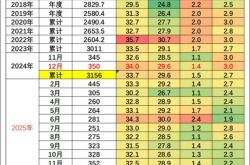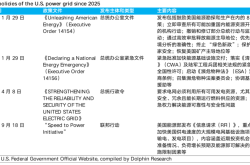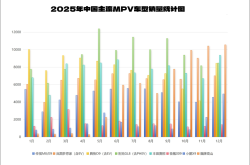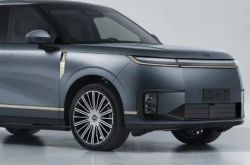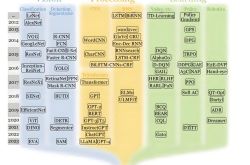Zhu Jiangming's 80 Thoughts: Leapmotor Should Be the Turtle in the Hare and the Tortoise Race
![]() 11/25 2024
11/25 2024
![]() 495
495
Introduction: Why is Leapmotor the biggest 'dark horse' in China's new energy vehicle industry?

By Tian Shanshan | Written by Lishi Business Review
Entering the second half of 2024, a 'super dark horse' has emerged in China's new energy vehicle industry. It is neither a star enterprise among the new forces in car manufacturing like NIO, XPeng, and Li Auto, nor a traditional player in China's automotive industry like Geely, Chery, or Great Wall Motors. Instead, it is Leapmotor, one of the new forces in car manufacturing that has long had the weakest presence in China's new energy vehicle industry. Unlike other automakers, each with a 'celebrity boss,' few people outside the automotive industry know the name of Leapmotor's founder.
In the recently released sales rankings for Chinese new energy vehicle brands in September and October, Leapmotor has ranked among the top three new forces in car manufacturing for two consecutive months. Taking October as an example, Leapmotor sold 36,086 vehicles in the domestic market, ranking second after Li Auto's 51,443 vehicles and Hongmeng Zhixing's 43,384 vehicles, and far exceeding NIO's 16,657 vehicles and XPeng's 20,317 vehicles. However, this is far from Leapmotor's limit. Positioned in the larger market segment below 200,000 yuan, Leapmotor is even expected to surpass Li Auto and Hongmeng Zhixing in the future, becoming the top seller among China's new forces in car manufacturing by monthly sales.
Leapmotor's rise to prominence has surprised the public because, initially, it seemed to lack advantages compared to other competitors.
First, compared to new forces in car manufacturing from the internet sector, such as NIO, XPeng, and Li Auto, Leapmotor lacks their huge financing advantages and topic traffic advantages.
Second, compared to sub-brands heavily invested in by traditional automotive giants like Zeekr, Aion, Avita, Arcfox, Lynk & Co, IM Motors, and ARCFOX in the new energy era, Leapmotor lacks their automotive industry experience and funding advantages.
Third, compared to technology giants from the smartphone sector like Huawei and Xiaomi, Leapmotor lacks their brand, R&D, and channel advantages.
However, despite these seemingly insurmountable odds, Leapmotor has made steady progress, ultimately reaching the center stage of China's new energy vehicle industry. This is undoubtedly a shocking achievement for the industry. How did they do it? Some may attribute it to their profound R&D capabilities, while others may point to their product strategy and product strength, or even their refined management capabilities. All these perspectives have some merit, but the author believes they are merely the results, not the causes. Behind technology, products, and management lies a highly mature leader: Leapmotor's founder, Zhu Jiangming.
Lishi Business Review has compiled 80 thoughts from Zhu Jiangming's public interviews, including his experiences from three entrepreneurial ventures, model choices, competitive strategies, and life attitudes, to help readers better understand why he can lead Leapmotor to become the biggest 'dark horse' in China's new energy vehicle industry.
I
About Three Entrepreneurial Ventures
1. Entrepreneurship is a marathon starting from scratch. Each industry has its own ups and downs.
2. Begin with the end in mind. First, establish your own capabilities and grow slowly.
3. Car manufacturing is a marathon, and Leapmotor aims to be the turtle in the hare and the tortoise race.
4. Leapmotor will be my last entrepreneurial venture. I hope to devote my utmost energy to making Leapmotor a global automotive brand. This is the goal I have always adhered to.
5. I don't have much traffic or popularity, so I focus on doing my technology well and striving to excel in it. (In 2024, during the Beijing Auto Show, Zhu Jiangming was interviewed and asked about his views on car company CEOs 'personally going down' to attract traffic.)
6. Whether a car sells well or not is 70% determined by product competitiveness and pricing, and 30% by promotion. In the internet era, promotion may account for a larger proportion, but ultimately, it will be corrected. Only by making good products can a good reputation be formed among users. (In 2024, Zhu Jiangming was interviewed by the media.)
7. In the initial startup phase, there were only a handful of people in the company, including just two R&D personnel, myself included. The entrepreneurial environment was tough back then, but fortunately, we were all young and full of energy, and we managed to carve out a path. (In 1992, Zhu Jiangming resigned and founded Dahua Telecommunications Equipment Factory with his friend Fu Liquan using 5,000 yuan, engaging in the R&D and sales of dispatching communication equipment, with its main product being the program-controlled dispatcher.)
8. In 2000, Dahua accidentally entered the security industry and began producing video surveillance, DVR, and other products. At that time, Dahua was a complete novice in the security field and faced tremendous pressure to gain a foothold in the fiercely competitive Chinese market, bearing the burden of operations and profits. In 2002, I led the team to launch the world's first 8-channel full real-time embedded DVR. After more than a decade of effort, we have grown from scratch to become the second-largest global player in the security industry.
9. In 2014, the state encouraged non-automotive companies to enter the new energy vehicle industry, and I also saw this opportunity. I believed that new energy vehicles would be a significant racetrack in the future, and the automotive industry would embrace the development opportunities of electrification and intelligence. In 2015, I established a team and entered this industry. (In 2021, Zhu Jiangming was interviewed by the media and discussed why he chose the new energy vehicle direction for his third entrepreneurial venture.)
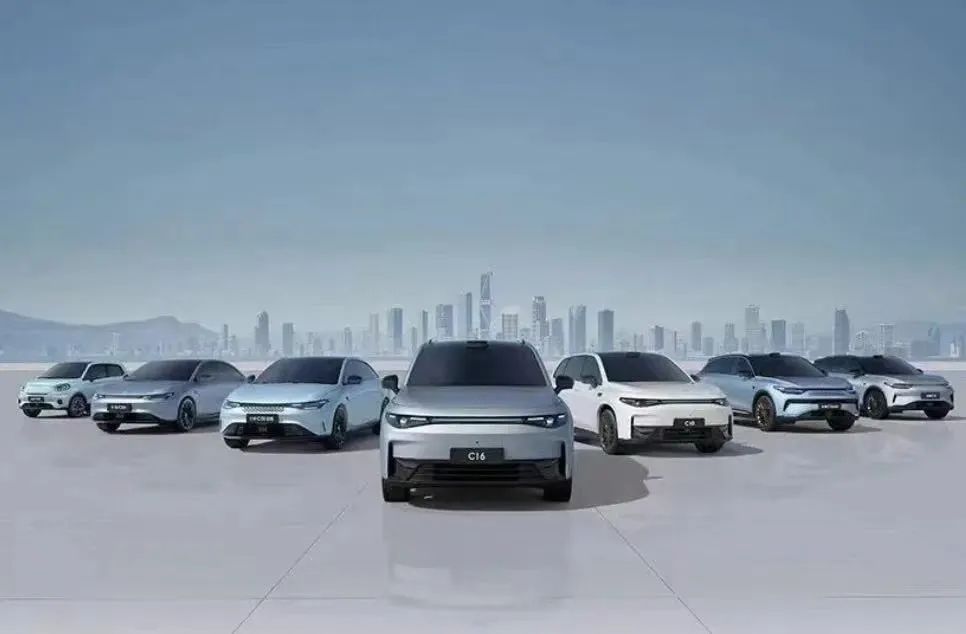
10. In the future, the core technologies of automobiles will no longer be traditional chassis, bodies, and engines but batteries, electric motors, electronic controls, intelligent driving, and intelligent interconnection. In these areas, Dahua already has much technical accumulation and application cases. For example, technologies such as camera-based visual recognition and microwave radar can almost be directly transferred to the electronic product architecture system of electric vehicles. Network interconnection, software and hardware integration, and embedded applications are Dahua's strengths. (In 2021, Zhu Jiangming was interviewed by the media and discussed why he chose the new energy vehicle direction for his third entrepreneurial venture.)
11. I was able to get to where I am today because of my ignorance, so I was fearless. If I had known from the beginning that making cars would cost 20 billion yuan, I might not have done it. At that time, I believed that it could be done with just a few billion, so I kept going.
12. I am an engineer by training, a system architect, and a product manager. I have always had an ultimate pursuit of the technical quality of technological products. Cars are a carrier that integrates technology and design, perfectly embodying my pursuit of technology and products.
13. At Leapmotor, what I am most concerned about is R&D, just as it was when Dahua was first established, where I personally oversaw R&D.
14. Smart electric vehicles are a systematic project involving nearly 10,000 components and a large number of intelligent sensor accessories. Hype can capture attention for a while, but strong R&D capabilities and the engineering spirit of specializing in products through down-to-earth efforts are the keys to victory. (In 2021, Zhu Jiangming was interviewed, and that same year, Leapmotor obtained the qualification for car manufacturing, and the first self-produced vehicle, T03, rolled off the production line, marking that Leapmotor had realized an integrated and complete industrial chain encompassing smart car R&D, intelligent production, sales, and services, becoming the only domestic new force at the time with full self-research and self-manufacturing capabilities.)
15. In the application of artificial intelligence, no foreign company in the world does better than Chinese companies because China is more open and inclusive, with more data and demand. Therefore, I believe that Chinese teams will emerge victorious in intelligent driving in the future, especially in the context of China's unique roads. I believe that Chinese people will definitely do better. (Zhu Jiangming was interviewed in 2021.)
16. More aggressive investments may lead to greater success, but in case of fluctuations, the company's operational actions may become distorted. The new energy vehicle industry is quite interesting. Besides those that can't make it and fall, the remaining players rise and fall, and it's unclear who will be the ultimate champion. Each player has difficulties but also opportunities.
17. Proceed steadily, with less aggressive goals and investments, and be thrifty from the start.
18. When we started Dahua in 1992, we had no loans and relied on our own funds and annual profits to gradually expand our scale, which would be safer. The Leapmotor team is very stable, especially the product, supply chain, and back-office teams, most of whom have been with the company since its inception in 2015.
19. The general successful entrepreneurial experience is how you meet customer requirements, whether they are B2B or B2C. Success comes when you satisfy your users.
20. (Young people who want to start a business) should not rush to start a business. First, become a professional manager, accumulate abilities, and then focus on doing something in a very small field. That's easier to succeed.
II
About Self-Research and Self-Manufacturing
21. Self-research is Leapmotor's hallmark.
22. I always believe that only by adhering to self-research in technology can we create cars with a soul. Engaging in an industry is more about technical accumulation. R&D comes first, and manufacturing is also crucial.
23. Car manufacturing is a 'marathon.' Self-researching core technologies is the driving force behind Leapmotor's persistent pursuit, helping us not rely on external suppliers.
24. Only by mastering hardware and software can a product have absolute competitiveness.
25. The reason for choosing the model of full-scale self-research and supplying components externally is related to my previous work experience at Dahua. Dahua's model is to always deeply participate in technology and the design and production of all components.
26. New energy vehicles are different from traditional vehicles and cannot fully replicate the Tier 1 model. Because it is an electronic product, like a mobile phone, it has the concept of generations and has high time requirements. Many electronic components need to be replaced every two years, and relying on third-party suppliers makes it difficult to iterate quickly.
27. Except for chips, we do everything ourselves, whether it's hardware or algorithms. Motors, electric drives, intelligent driving, and cockpits are all done in-house.
28. Leapmotor's self-manufacturing rate exceeds 70%. We conduct full-scale self-research on electronic components. (Zhu Jiangming was interviewed by the media in June 2024.)
29. Currently, Leapmotor has independently developed autonomous driving systems, intelligent connectivity, and the three-electric system and has its three-electric workshop, which is rare among new forces and even old forces in car manufacturing. (Zhu Jiangming was interviewed by the media in February 2020.)
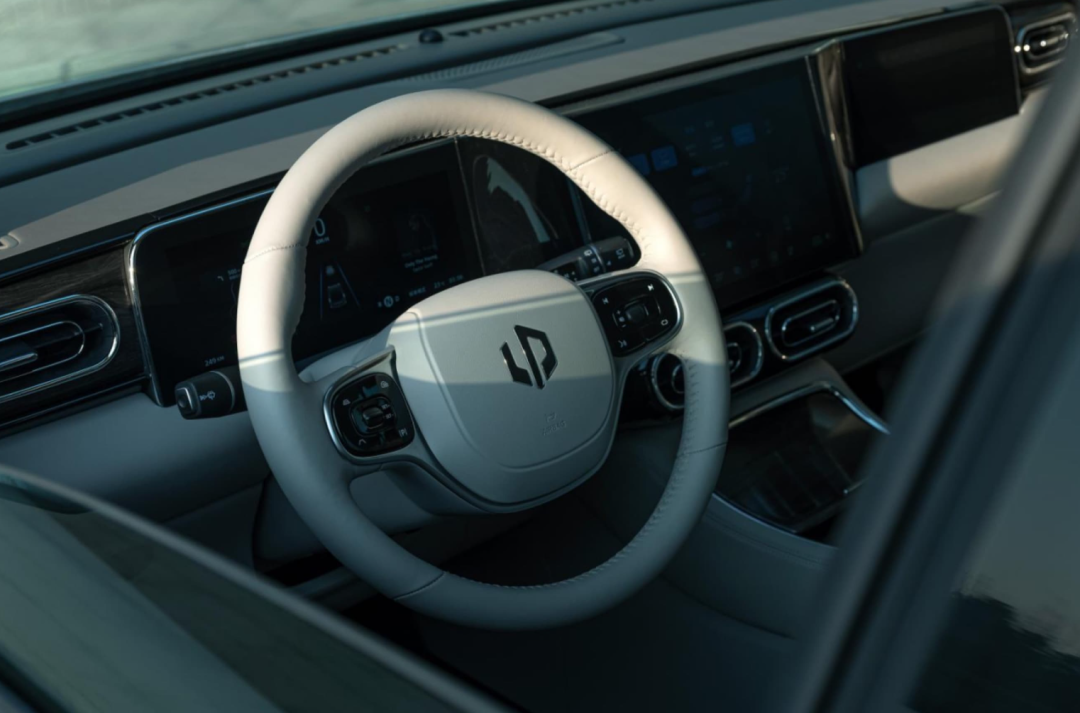
30. I have always believed that battery packs should be made by the vehicle manufacturer itself and not outsourced to a third party. After the integration of batteries, bodies, and chassis, the chassis should be designed and manufactured as an integral part of the entire vehicle. Only in this way can we achieve the lightest weight, better load-bearing capacity, higher body strength, and optimal cost.
31. (Standard for self-research) Based on our capabilities, we look at what we can do. Then, it must be profitable with a large gross profit margin. (In 2024, Zhu Jiangming discussed the standard for Leapmotor's self-research.)
32. Enterprises must ultimately make a profit, and any business activity requires a corresponding business model to support it. For chips, companies must make huge investments from the beginning. Therefore, either there must be state investment, or the enterprise must ensure a sufficient application scale to proceed. Otherwise, it will affect the normal development or even survival of the enterprise. Currently, several chip companies are doing quite well, sufficient to meet the needs of automakers. I believe that making chips is not something that domestic automakers should do at present. (Zhu Jiangming was interviewed in November 2024.)
33. Leapmotor will not make chips in the next 5-10 years. Without sufficient scale support, it is impossible to make chips. Only when we reach a scale of 2 million to 3 million vehicles, have a sufficient budget, and self-researched chips can significantly improve performance or reduce costs will we consider self-research again. (In 2024, Zhu Jiangming discussed why Leapmotor abandoned self-researched intelligent driving chips. In 2021, Leapmotor developed the AI intelligent driving chip 'Lingxin 01,' becoming the only domestic automaker at the time to self-research chips and put them into mass production. Later, Leapmotor abandoned self-researched intelligent driving chips due to the disproportionate input-output ratio.)
34. One of the differences between us and BYD is that we outsource battery cells. Battery cells are a capital-intensive business, and we will try to avoid large capital investments. BYD has built much capacity, but if sales do not keep up, equipment will sit idle, which is a significant risk.
35. Mastering core technologies is fundamental to an enterprise's survival. Only by adhering to self-research and self-manufacturing can an enterprise firmly grasp its development destiny.
36. In the first five years, more effort was spent on accumulating core technologies. Sufficient accumulation of core technologies means a better foundation for future development. (In 2021, Zhu Jiangming was interviewed, and that same year, the first self-produced vehicle, T03, rolled off the production line, marking that Leapmotor had realized an integrated and complete industrial chain encompassing smart car R&D, intelligent production, sales, and services, becoming the only domestic new force at the time with full self-research and self-manufacturing capabilities.)
37. Leapmotor has some technical reserves and foundations. I myself have been working on artificial intelligence since 2008, and we have achieved global first place in areas such as face recognition and license plate recognition. The entire AI technology is interconnected with intelligent car driving, and we are confident that we can compete with Tesla in three years. (In 2021, Zhu Jiangming was interviewed, and that same year, Leapmotor's first self-produced car, T03, rolled off the production line.)
III
About Cost Pricing and Low Gross Margin
38. The price range of 100,000-200,000 yuan is the most competitive and largest market share segment in China. We hope to get a piece of this pie.
39. Consumption forms a pyramid. It depends on your choices: whether you want to be Ferrari, Porsche, Audi, or Passat. Each brand has its positioning, targeting different groups and market sizes. It's not necessarily better to have a higher positioning.
40. Even a 200,000-yuan car can have a low gross margin.
41. We always emphasize cost pricing. Only by offering lower prices and better quality than our peers can we survive.
42. Quality-to-price ratio means that our product power should approach that of Porsche but still be sold at the price of a Passat. This is our logic for making cars.
43. Leapmotor's product pricing is always based on cost, not brand.
44. Create good but affordable products, offering lower prices for the same configuration or higher configurations for the same price.
45. Compared to competitors at the same price point, Leapmotor's products must have at least one higher configuration level in terms of equipment while maintaining a certain gross margin.
46. I hope Leapmotor's positioning in the automotive industry will be like that of Uniqlo in the apparel industry: slightly more expensive than average products but with better fabrics, textures, and designs. (Zhu Jiangming was interviewed by the media in June 2024.)
47. Making cars in the 100,000-200,000 yuan range, cost reduction is no less important than innovation.
48. Aggressive price reductions are an inevitable process in industry development, as only this can allow competitive companies to survive. The mobile phone and home appliance industries have gone through this process. We don't feel too much crisis. When competitors lower their prices, we improve our configurations. Ultimately, it comes down to cost control capabilities.
49. Why can our 100,000-yuan-level cars offer urban intelligent driving in 2025? It's because we can control costs. Ultimately, it's all about costs.
50. Costs and technology are inseparable. Only with good technology can we gain a cost advantage. Products need to be designed and developed to differentiate from competitors before they can form a competitive advantage with costs.
51. We cannot be worse than BYD in cost control.
52. The most valuable interior parts, such as door panels and dashboards, are mainly supplied by joint ventures. We have just signed a contract with Changshu Interior to establish a joint venture factory, where door panels and dashboards will be produced in the future. We hope to collaborate with local governments and suppliers. However, I try to operate with minimal assets, which further reduces costs.
53. The larger the scale, the more the advantages of manufacturing management are evident. Small-scale operations do not reach the same level of excellence.
54. To achieve a sufficiently large scale in the automotive industry, one must have a robust parts system to reduce costs, ultimately benefiting sales. BYD and Toyota excel in this area.
55. Cost control relies on refined management and platform-based operations. After reaching a certain scale, such as 1 million or 3 million sales, the difference in scale advantage diminishes, and more refined management becomes crucial.
56. The principle of Zero Run's supply chain construction is to minimize expenditure.
57. Toyota's philosophy is zero inventory, but this requires a strong brand appeal, certainty in planning, and a large scale. To achieve Toyota's level of excellence, we need longer optimization and stable production capacity with minimal fluctuations.
58. In the area of parts, including platform-based cooperation, Zero Run Automobile will leverage more opportunities to leverage its advantages. Toyota serves as a good example, as parts are a significant revenue source and a promising product and direction. (In 2024, Zero Run Automobile began considering the "Tier 1 Supplier" development model and negotiated with other OEMs to enter their supply chain systems.)
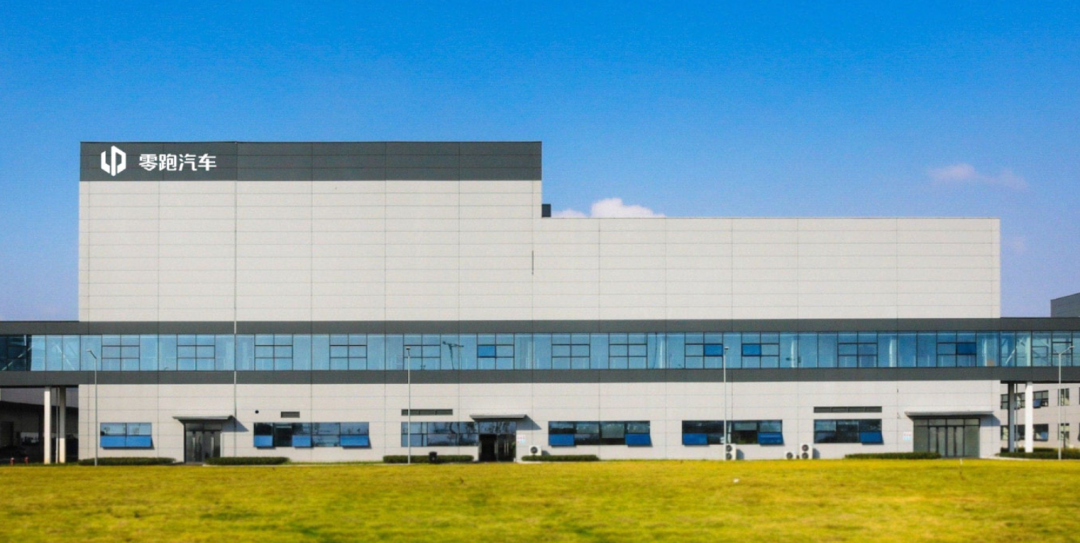
4
Follow-up Strategies
59. I won't be the frontrunner, but I must enter the first tier.
60. We must keep up with the most prominent technological advancements. Whether we achieve a score of 90 or 80 is another matter.
61. We have been investing in intelligent driving for four or five years. However, we aim to follow rather than lead. Our implementation may be slightly delayed, but by no more than 6-12 months. (Zhu Jiangming was interviewed by the media in June 2024.)
62. We need to see if Tesla's FSD can truly be implemented. Once verified, we will commit fully.
63. Once Tesla's FSD appears, others will follow within 6-12 months, differing only in engineering and development time. I believe there won't be significant differences among manufacturers; the ultimate methodology is the same, and it boils down to how much they are willing to invest.
5
Going Abroad Through Joint Ventures
64. Focus and avoid two-front operations. With overseas partners to quickly penetrate foreign markets, we can concentrate fully on the domestic market.
65. To sell cars overseas in large quantities, localization is the only way.
66. In 2022, we began searching for overseas partners and ultimately chose the Stellantis Group (the world's fourth-largest automaker). Our joint venture to sell the Zero Run brand overseas is a case of 1+1>2, leveraging each other's strengths in foreign markets. (In May 2024, Zero Run Automobile and the world's fourth-largest automaker, Stellantis, established a joint venture, "Zero Run International," aimed at expanding markets outside Greater China.)
67. The advantage of going abroad through joint ventures is that Zero Run can focus its marketing system domestically, taking a solid and thorough approach. Overseas, it can rapidly expand with Stellantis's market experience and brand endorsement. Additionally, we can leverage Stellantis's factories worldwide for localized manufacturing. Stellantis has chosen a light-asset model to re-enter the Chinese market by not establishing operations but investing to become a shareholder in Zero Run, gaining access and understanding of the Chinese market while also gaining market share through Zero Run.
6
Setbacks and Growth in Automobile Manufacturing
68. At that time, our understanding of the automotive industry was indeed limited. Our first car, with insufficient consumer awareness, was a two-door coupe. If it had been a four-door coupe, our position in the industry and sales would have been drastically different. This was a learning experience. (In 2019, Zero Run's first car, the S01, was launched and retired in 2022 with cumulative sales of less than 3,000 over three years. This failure plunged Zhu Jiangming and Zero Run into significant difficulties.)
69. With no money on the books and sluggish sales... I reflected in solitude for a month. (From 2019 to 2020, Zero Run's capital chain was on the verge of collapse. To survive, Zhu Jiangming supported Zero Run with his own savings to pay employees.)
70. (In 2022) After the IPO, Zero Run experienced a prolonged dark period internally. All senior executives took a voluntary 20% pay cut, and I worked without pay.
71. In the domestic market, if you don't progress, you regress. Your products next year must be better than this year's; otherwise, you will be eliminated.
72. Taking an existing approach is undoubtedly faster and can quickly capture the market. However, with a solid foundation, acceleration will be faster later. We sacrificed some initial speed but gained faster acceleration.
73. Our first 100,000 cars took three years, the second 100,000 shortened to one year, and the third 100,000 took less than six months, fully demonstrating Zero Run's acceleration in development. (On December 24, 2023, on the 8th anniversary of Zero Run Automobile's establishment, Zhu Jiangming reviewed Zero Run's development journey from 0 to 1 in an open letter.)
74. At this stage, an annual sales volume of 500,000 can sustain operations, while 1 million vehicles indicate relatively strong vitality. To truly survive in the long run, sales must exceed 3 million. (On October 17, 2024, Zero Run's 500,000th mass-produced car rolled off the line. It took just over 100 days to go from 400,000 to 500,000 cars, setting a new record for new-energy vehicle startups.)
75. I don't see anything wrong with it. Lixiang One has always been at the forefront. We can learn from Lixiang. (Zhu Jiangming responded to Zero Run being labeled as a "cheaper alternative to Lixiang One" in an interview.)
7
Attitude Towards Life
76. I am not easily influenced by the outside world.
77. Interest is the ultimate realm.
78. I enjoy delving into technology, which helps me stay calm. I am also very interested in leveraging my strengths in this new industry (new energy vehicles) and doing what I enjoy, no matter how difficult or tiring it is.
79. I prefer not to talk too much and focus on doing things well. However, since entering the automotive industry, I've encountered more media in these few years than in the first half of my life.
80. People's energy is always limited, requiring choices: whether to focus more on promotion or refining products. I personally prioritize refining products.
Reference Sources:
1. "Competing with BYD in Cost Control? Zhu Jiangming Chooses the Hardest Path for Zero Run | LatePost Interview," June 18, 2024
2. "Going Abroad • People | 'The Ascetic' Zhu Jiangming Takes Zero Run Abroad Through Reverse Joint Ventures," May 2024, Auto Going Abroad Observer
3. "Exclusive Interview | Zhu Jiangming of Zero Run: As Cars Transition from the LV Era to the 'Uniqlo Era'," June 2024, Xuebao Finance and Economics Society
4. "Zhu Jiangming of Zero Run Automobile: We Are Currently at a Stage Similar to BYD's 300,000-400,000 Cars," October 2024, 36Kr Pro
5. "Zhao Fuquan Interviews Zhu Jiangming (Full Series): Technological Ecosystem Construction for OEMs," November 2024, Guest Automotive Strategic Consulting
6. "Zhu Jiangming, Chairman of Zero Run Automobile: The Fundamental to Survival is Self-Research and Self-Manufacturing," February 2020, The Beijing News
7. "Biography of Hangzhou Entrepreneurs | Zhu Jiangming of Zero Run Technology: Running from Zero to Create Cars with a Soul," 2021, Hangzhou Daily
8. "Zhao Hejuan Interviews Zhu Jiangming: Zero Run's Pragmatism and Desire for Change," December 2023
9. "Interview with Zhu Jiangming of Zero Run Automobile: I Knew It Would Cost 20 Billion; I Might Not Have Done It | Exclusive In-depth Interview by ECNS," January 2023, ECNS

